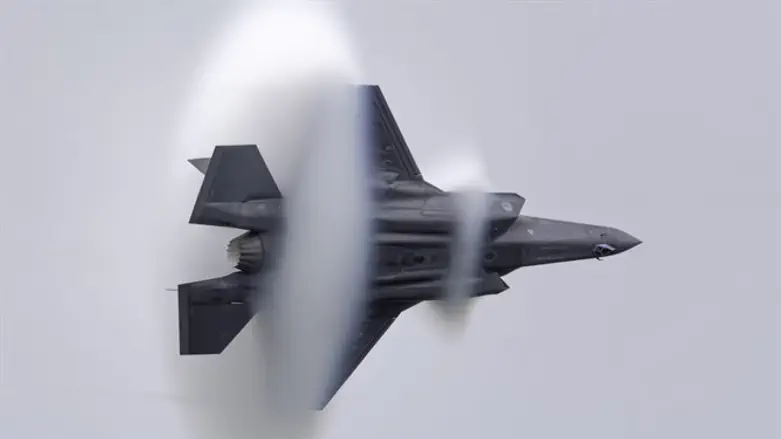
The U.S. State Department has released the list of weaponry it is planning to sell to the United Arab Emirates, pending approval from Congress.
Key among the items on the list are 50 F-35 stealth fighter jets as well as 18 MQ-9 Reaper drones which would significantly upgrade the UAE’s military capacity. The entire package is estimated at around $10.4 billion, and will also include smart bombs and precision-guided missiles.
The UAE has been seeking to purchase F-35 jets for at least nine years. They put in their first request to the Americans in 2011, but the Obama administration turned them down. In 2017 they revisited the issue, and this time, according to Forbes, they received a strong hint that if they made significant progress with normalizing their relations with Israel, they might receive a positive response.
Back then Israel and the UAE were already cooperating in small ways, primarily against the mounting Iranian threat. To date, the only nation in the Middle East to have acquired F-35s is Israel. These fifth-generation fighter craft, manufactured by Lockheed Martin Corp., have also been sold to South Korea and Japan. A proposed sale to Turkey fell through after Erdogan’s administration purchased a Russian-made anti-aircraft missile system.
In January of this year, the UAE’s desire to obtain F-35s gained urgency when Iran accidentally downed a Ukrainian passenger jet, killing everyone on board. F-35s have advanced stealth capability; according to experts, they could enable the Emiratis to strike targets even deep within Iran on the very first day of war, if conflict breaks out, evading the country’s advance air defense systems.
The UAE and Iran are already on opposite sides of a battle in the Yemeni arena, each of them backing opposing forces in the now five-year-long and ongoing civil war. The Reaper drones, heavily armed, precise, and unmanned, may now end up used in Yemen, just as similar, less advanced Chinese-made drones have already been used to great effect in other conflicts such as those in Syria and Libya.
The UAE has claimed that it made no specific reference to F-35 jets prior to its peace agreement with Israel, a claim backed up by Prime Minister Netanyahu and hotly contested within Israel. Before submitting the list of weapons to Congress, U.S. Defense Secretary Mark Esper met with his Israeli counterpart, Benny Gantz, and promised him “compensation” that would maintain Israel’s qualitative military edge in the Middle East.
Israel currently has 50 F-35 jets, and according to Forbes, the government has an option to purchase another 25, which it may well exercise. However, the Americans are allegedly offering a lot more than that. One of the possibilities is that they will grant Israel access to their multibillion-dollar missile defense system based on SBIRS satellites. This would give Israel a significant upgrade in its missile detection capabilities, arguably of far more value in the ongoing state of tension with Iran than a few more fighter jets and drones. Another possibility being floated is that the United States will give Israel deeper access to the F-35 internal network, enabling installation of new technology into the basic F-35 structure. In fact, Israel has already made several upgrades to its fleet of F-35 jets, but deeper access would be of undoubtable benefit.
Another point worth mentioning is that while the Americans will likely go through with the sale, the deal apparently does not include a commitment to ongoing American maintenance and computer support for the F-35s. As such, if at any juncture the UAE takes a course in opposition to American interests, the U.S. could effectively disable the entire UAE fleet of F-35s, rendering them useless.
Congress now has 30 days to debate the deal, and the final authorization will almost certainly be granted during the final days of President Trump’s current term in office.

